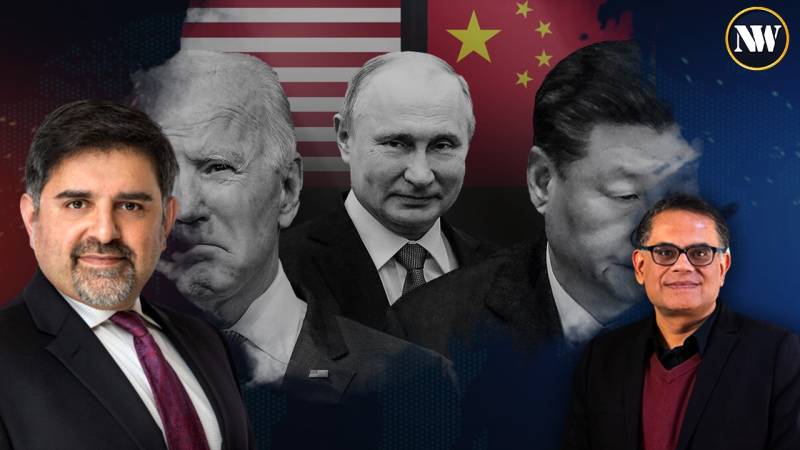The recent visit of President Xi Jinping to Russia, and his meeting with Russian President Vladimir Putin, have ignited a whirlwind of speculation and analysis. This tête-à-tête between the leaders of two influential nations has sparked discussions about the potential formation of a new axis of power aimed at countering the long-standing dominance of the United States on the global stage. As we delve into the intricacies of this visit and the underlying dynamics, we find ourselves peering into a complex tapestry of motivations, interests, and regional aspirations.
The importance of President Xi's visit cannot be understated. It occurred against the backdrop of Vladimir Putin's increasing isolation and the looming specter of a trial at the United Nations' International Criminal Court of Justice. Amid these challenges, China's intentions take center stage, revealing a multi-faceted approach that sheds light on its strategic goals in the region.
One notable facet is China's interest in seeing Russia's position weaken. While this might seem counterintuitive at first, a closer examination reveals a nuanced perspective. China's satisfaction with Russia's diminishing influence lies in the opportunities it presents for China to expand its own reach, particularly in Eurasia. Central Asia, a region historically under Moscow's sphere of influence, has been experiencing a gradual shift as China makes steady inroads. Even before the Ukraine crisis, China's footprint was extending, illustrating its gradual encroachment into Russia's traditional domains.
The second dimension of China's motivations is leveraging Russia's entanglement in the Ukraine conflict. President Xi's visit appears more aligned with information operations rather than tangible actions. This is a strategic play to use Russia's involvement to sow discord and challenge the United States, effectively creating a wedge in the transatlantic alliance.
Yet, the question arises: How substantial a role can China play in mediating the Ukraine conflict? Despite its increasing global clout, China's limitations become apparent in this context. The heart of the Ukraine crisis lies in tensions between Russia and Western powers, particularly the United States. While China's ability to make statements or call for conflict resolution is not negligible, it lacks the means to bring about meaningful negotiations between Russia and the U.S.
Zooming out, China's ascension as a global powerhouse demands consideration. While its economic prowess, expansive trading networks, and assertive foreign policies are undeniable, the extent of its influence remains subject to various factors. One critical factor is the efficacy of its signature Belt and Road Initiative (BRI), which aims to foster economic and infrastructural connectivity across nations. However, the BRI has encountered setbacks, as instances of debt-driven influence have fueled skepticism and opposition.
China's increasing influence on the international stage is not without its challenges. Its assertive actions have led to perceptions of predatory behavior, leading many nations to tread cautiously in their dealings with the rising superpower. While China seeks greater participation in international organizations, its effectiveness hinges on how the world chooses to engage with it. Moreover, China's regional neighbors, including Australia, Malaysia, Indonesia, the Philippines, South Korea, Japan, Taiwan, and Vietnam, often regard it with a mix of interest and wariness, which impedes its efforts to exert unchallenged influence.
Addressing the speculation about a China-Russia power axis, a more nuanced perspective emerges. Rather than envisioning an immediate and cohesive power bloc, the evolving dynamics are characterized by China's economic ascendancy overtaking Russia's waning influence. While China boasts greater financial strength and the ability to project power, it lacks Russia's formidable military-industrial complex. Thus, while a unified power axis may not be on the horizon, the shifting balance does hint at a changing landscape where China's influence predominates.
As we conclude this exploration of President Xi's visit to Russia and its implications for emerging power dynamics, it becomes evident that the situation is far from black and white. The global stage is witnessing a fluid interplay of interests, aspirations, and strategic calculations. China's growing influence and Russia's challenges form the backdrop against which the future of global geopolitics will be written.
The power dynamics at play offer no definitive answers at this juncture. While China's trajectory is one of economic growth and increasing influence, it remains to be seen whether it can translate this into a sustained dominance that can challenge the established order. On the other hand, Russia's weakening position raises questions about its ability to navigate through the storm of challenges it faces.

